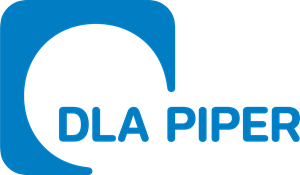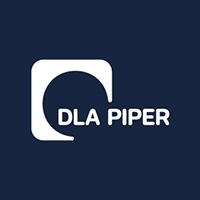What are Software Patents and Do I Need Them?! | Alan Macek & Geoff Mowatt, DLA Piper
Resources mentioned on this episode
About this episode
In today’s episode, Melissa sits down for a (virtual) drink with Alan Macek and Geoff Mowatt from the law firm DLA Piper. After the guys pour their ale and beer and Melissa her mango sour, Alan and Geoff each share about their own backgrounds and work. Alan is a partner at DLA Piper’s Toronto office whose practices focus almost solely on patents. He works closely with innovators and founders to get them patents. Additionally, he works in patent litigation. Geoff works alongside Alan in the field of intellectual property with a focus on patents and patent litigation. He works in patent strategy helping both startups and large companies with their patent strategies.
To begin, Alan defines patent as a grant of an exclusive right by a national government. The owner of a patent is given the exclusive right to practice what is claimed within the patent for up to 20 years after filing. During this time frame, the holder of a patent is the only one allowed to utilize the ideas claimed within it. Listen as Geoff explains the difference between a patent and a trademark. They both often recommend clients think very carefully about the content they enter into a provisional application and consider where their ideas might be later on down the line. 19 months after filing for a patent, the patent will be available on the website of the patent office.
It is a common misconception that, in order to be valuable, a company needs to have many patents. Other misconceptions include that patents are too expensive for startups and that the patent game is reserved for large scale companies. For startups, obtaining a patent within your key jurisdiction can create enormous value for your company. Many investors and VCs ask about patent protection right off the bat. Patents are not reserved for utmost brilliance, but rather for any idea that is not obvious. Next, Alan and Geoff clarify when an organization can know when applying for a patent is worth their while. The grant rate is around 50%. Though it does take time for an application to be approved, this doesn’t mean you can’t get started on your idea right away.
Patents hold major value for companies large and small. If you get a patent and are seeking investment, for example, it shows that part of your business may be innovative. It is also a potential source of licensing revenue and the right to exclude competitors. At the most basic level, it is an asset your company will have. On the other hand, there are two major ways parents can potentially hurt a business. First, it is an extra large expense even if the patent does not get approved. Second, if you submit your clever idea into a patent application, it will then become published for the world to see. In light of the fast pace encouraged for startups, it is clarified that applying for a patent doesn’t have to slow down a business.
Next, hear the implications of unknowingly utilizing a previously patented idea.In some cases, the patent holder may never get into contact with you. However, if a patentee does realize that someone is infringing their patent, some sort of mitigation is likely to take place. Then, Alan and Geoff unpack the considerations a startup should make to determine if they can afford a patent financially and time-wise. Before wrapping up, they share the process for filing a patent. The first step is drafting the application, which involves working with the inventor to describe the innovation. Next comes making the choice of where to file. Finally comes the 2-5 year time period to hear the verdict of the application. In closing, Alan and Geoff each share their best words of wisdom for bootstrapped founders listening in.
Timestamps
0:55 - Welcome to this episode, in which host Melissa interviews Alan Macek and Geoff Mowatt.
3:40 - Alan and Geoff provide introductions of themselves and their work.
4:57 - What is a patent?
12:07 - Common misconceptions about patents.
16:28 - When to file for a patent.
25:05 - The different ways patents can help a business.
26:33 - Can having a patent hurt a business?
27:21 - Balancing efficiency and the slow patent application process.
31:41 - What happens if you unknowingly use a patented idea?
35:28 - Preparing in cost and time for applying for a patent.
37:37 - What are “patent trolls” and do they always win?
40:41 - The process for filing a patent.
4254: - Final words of wisdom.
About ProfitLed
Welcome to the ProfitLed podcast, where we discover proven growth strategies for bootstrapped entrepreneurs from the people who have done it before to help you accelerate your business! The ProfitLed podcast is brought to you by eWebinar, the leading automated webinar tool, and hosted by eWebinar Cofounder and CEO, Melissa Kwan.
ProfitLed is forum for the unsung heroes of SaaS, the founders and others behind the bootstrapped startups who are creative and resourceful enough to forge a pathway to success. Here’s where they get to share everything they learned along the way, so you can benefit from their expertise and find success in your ventures, too!
Learn more about your host, Melissa Kwan, and the ProfitLed podcast.
Learn more about eWebinar.
Tags
eWebinar, webinar, SaaS, patents, founder, DLA Piper, law firm, law, intellectual property, tech, IT, AI, Canadian patent, legal services, royalty, licensing, startups, trademark, marketing, branding, investors, VCs, innovation, patent application, patent protection, bootstrapped founders, profitability, product development


